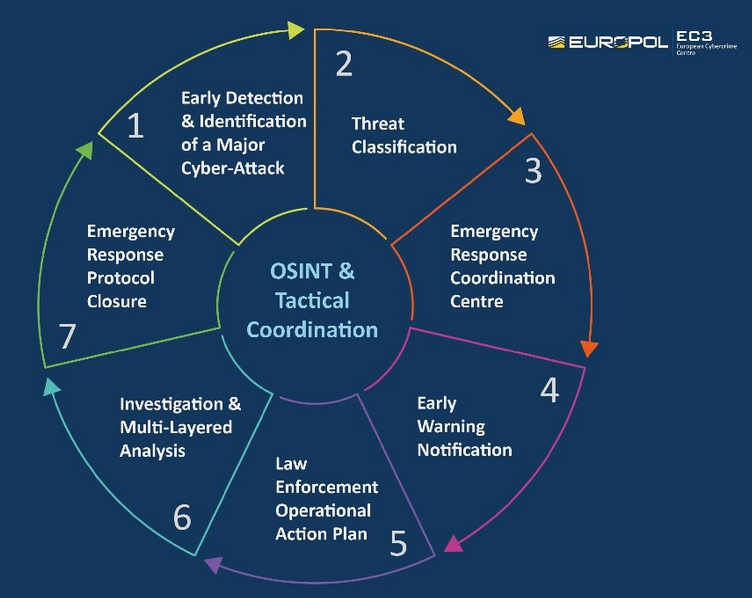Europol on Monday announced the adoption of a new protocol for how law enforcement authorities in the European Union and beyond will respond to major cross-border cyberattacks.
The new EU Law Enforcement Emergency Response Protocol should prove useful in case of major attacks such as the ones involving WannaCry and NotPetya malware, which in 2017 hit hundreds of thousands of systems around the world and caused significant losses for many organizations.
The new protocol, adopted by the Council of the EU, is part of the EU’s Blueprint for Coordinated Response to Large-Scale Cross-Border Cybersecurity Incidents and Crises, and it will be implemented by Europol’s European Cybercrime Centre (EC3). It focuses on rapid assessment, sharing of information, and coordination of the international aspects of an investigation.
The protocol only covers malicious and criminal cyber incidents — Europol highlighted that it does not cover incidents caused by natural disasters or ones resulting from human error or system failure. Its goal is to complement existing crisis management mechanisms.
The protocol has seven main components: early detection and identification of a major cyberattack, classification of the threat, establishing a coordination center for emergency response, early warning notifications, an operational action plan for law enforcement, investigation of the incident, and emergency response protocol closure.

“The EU Law Enforcement Emergency Response Protocol determines the procedures, roles and responsibilities of key players both within the EU and beyond; secure communication channels and 24/7 contact points for the exchange of critical information; as well as the overall coordination and de-confliction mechanism,” Europol said.
Related: Europol, Diebold Nixdorf to Share Information on Cyber Threats
Related: Europol Creates Dark Web Investigations Team
Related: Hackers Linked to Luminosity RAT Targeted by Law Enforcement













